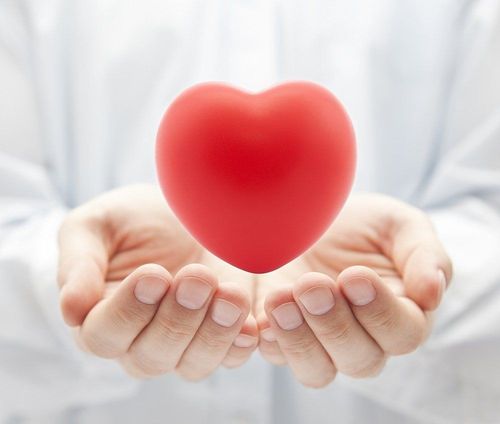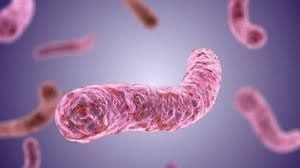This is an automatically translated article.
Article written by MSc Cao Thanh Tam - Cardiologist, Cardiology Center - Vinmec Central Park International General Hospital.
Electrolytes are substances that can dissolve in body fluids, creating ions with positive and negative charges. These minerals are very important for the body because they help carry out nerve and muscle functions, help keep the balance of body fluids, blood pressure and blood pH.
1. The role of electrolytes in the human body
Normally when the body is healthy, there is no pathological disorder, the inside and outside the cell membrane always have a balance of charge. But as long as there are minor disturbances of diseases, especially cardiovascular diseases - metabolism, stress or after surgery... then this balance will be disrupted causing the concentration of free ions. in blood such as Ca++, K+, Na+, Cl-, Mg++... can suddenly increase or decrease.
Sodium is the major cation of extracellular fluid, playing a fundamental role in maintaining water distribution and osmotic pressure in the tissues of the body. Sodium is abundant in table salt. The balance of sodium in the diet is extremely important to help the body stay healthy. Normal blood sodium levels are 135-145 mmol/l.
Potassium is the main cation of the intracellular fluid, which maintains the response to stimulation of neuromuscular cells. Potassium in the body plays a very important role, especially with the cardiovascular system, potassium concentration is closely related to the excitability of the heart muscle, conduction, heart rate.
Potassium is abundant in foods such as bananas, sweet potatoes, radishes, ....
Potassium has a normal concentration in the blood of 3.5 - 5 mmol/l.
Calcium has an important role in many biological functions of the body, especially blood clotting.
Electrolyte disturbances are common in people with an imbalanced diet (eating too light, eating too salty, abusing soft drinks, energy drinks, ...) and in people who are in a bad mood. illness or systemic illness. In particular, the disturbance of two most important minerals in the group of electrolytes is sodium and potassium.
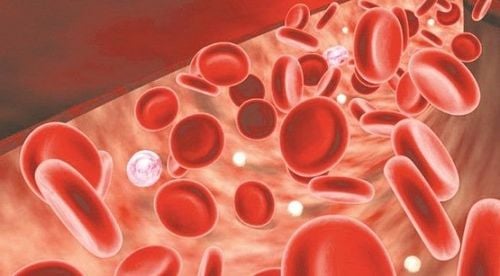
2. Electrolytes and cardiac function
The electrolytes potassium, sodium, magnesium and calcium play a very important role in the functions of the myocardium and myocardium. The movement of these ions across the membrane of the myocardium induces a voltage across the myocardium. membrane to exceed the threshold and emit an action potential, resulting in muscle contraction. Electrolytes carry an electrical charge and are maintained at physiologically tight concentrations through various mechanisms to maintain proper cardiac function.
Electrolyte Imbalance: An imbalance of these electrolytes can have adverse effects on the heart, causing or contributing to arrhythmias and sudden cardiac death.
Potassium imbalance is the most common cause of electrolyte-related arrhythmias. Potassium plays an important role in nerve conduction. Low potassium levels can cause relatively stable arrhythmias, while high potassium levels can quickly lead to deadly arrhythmias. An imbalance of sodium, magnesium, and calcium also puts the heart at risk for arrhythmias.
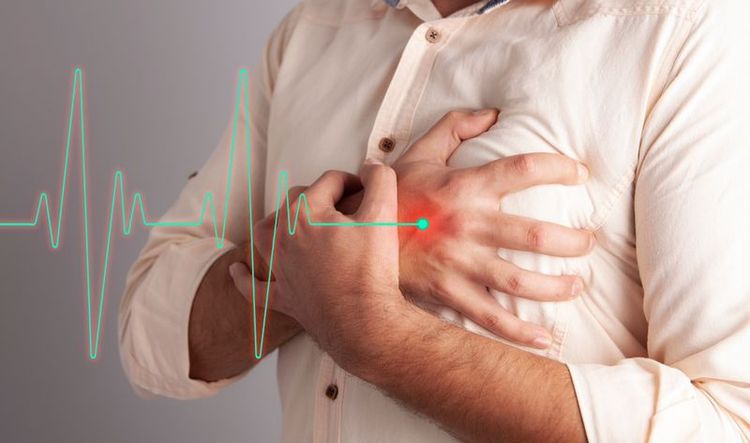
3. Symptoms of arrhythmia
Cardiac arrhythmias can make the heart's pumping action less efficient and cause the following symptoms:
Palpitations, palpitations: This is the most common manifestation of an arrhythmia. You may have a feeling of "dropping," or a feeling that your heart stops for a few seconds and is often followed by a strong, "drum-like" beating in your chest. Accompanied by symptoms of palpitations, patients may have fainting or dizziness, lightheadedness. These are often the signs that lead the patient to the doctor. Feeling your heart beat faster or slower than normal. Feeling tired, short of breath: A prolonged arrhythmia will reduce the heart's pumping and blood-sucking efficiency, causing you to have symptoms of shortness of breath and fatigue. Chest pain: Is one of the dangerous signs of arrhythmia, especially when appearing on the background of existing cardiovascular diseases such as coronary artery disease, myocardial infarction ...
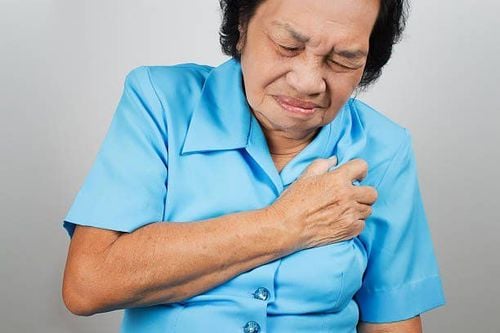
4. Diagnosing electrolyte disorders
Blood tests can accurately measure the concentration of electrolytes in the blood. In addition, the doctor may perform a general physical examination and order other tests to confirm the diagnosis.
5. When to see a doctor?
When the above symptoms appear, you should see a doctor soon to avoid dangerous health events. In some cases, an arrhythmia can be harmless, but in most cases it is a manifestation of a serious medical condition that threatens your life regardless of the cause, including heart failure. electrolyte disturbances. Therefore, if you feel any abnormality of your heart, it is best to go to medical facilities to be checked and detect cardiovascular problems early. Especially in the following situations:
Fast or slow heartbeat with palpitations, dizziness or fainting. Arrhythmia accompanied by difficulty breathing, pain in the chest, neck, shoulder, arm, or back. Arrhythmia occurs when you first take a certain medicine. Arrhythmia co-occurs with other symptoms such as weight loss, prolonged fatigue and palpitations accompanied by headache and sweating... Vinmec International General Hospital is one of the hospitals that not only ensures ensure professional quality with a team of leading medical professionals, a system of modern equipment and technology, but also stand out with comprehensive and professional medical examination, consultation and treatment services; civilized, polite, safe and sterile medical examination and treatment space. Customers when choosing to perform tests here can be completely assured of the accuracy of test results.

Please dial HOTLINE for more information or register for an appointment HERE. Download MyVinmec app to make appointments faster and to manage your bookings easily.









